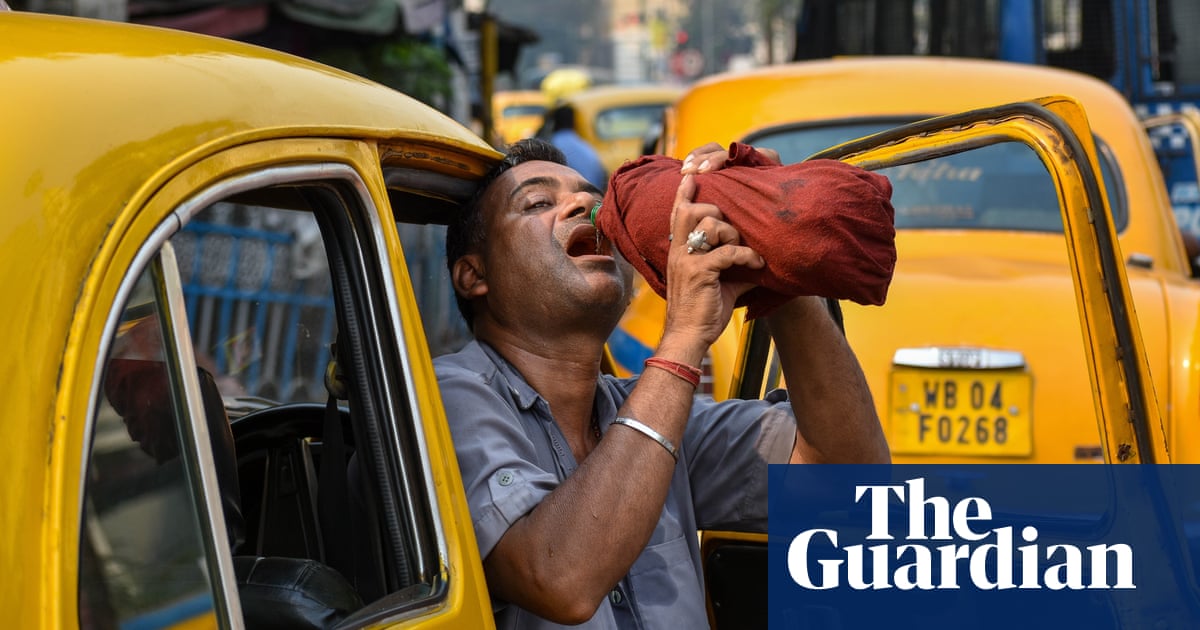
Europe’s mega farms and pollution crisis
The heavy concentration of mega farms, and millions of pigs, cattle and chickens in a small number of areas across Europe, has created a pollution nightmare, according to a new Guardian investigation.
In the UK, a hotspot for chicken farming is Herefordshire, with a major deal to supply chicken to Tesco now being linked to the pollution of one of the UK’s favourite rivers, the Wye.
In Germany, the “pig belt”, a hotspot of meat production in the northwest state of Lower Saxony, has been blamed for excess ammonia emissions and nitrates in groundwater.
News from around the world
Yields of key crops in Europe will be sharply down this year owing to heatwaves and droughts, exacerbating the impacts of the Ukraine war on food prices. Maize, sunflower and soya bean yields are forecast by the EU to drop by about 8% due to hot weather across the continent.
There is frustration in Canada over plans to reduce fertiliser use to combat the climate crisis. The government wants a 30% reduction in emissions, and farm producer groups say that cutting nitrous oxide emissions can’t be done without reducing fertiliser use.
Meanwhile, Ireland has committed to a 25% cut in greenhouse gas emissions from agriculture by 2030 after a bitter political battle between farmers, business groups and environmentalists.
Indonesia is dealing with its first major outbreak of foot-and-mouth disease in almost 40 years. Since May, more than 300,000 cases have been recorded across 21 provinces, prompting the Indonesian government to roll out a vaccine programme to inoculate healthy cattle.
French health authorities have confirmed a link between nitrates added to processed meat and colon cancer, dealing a blow to the country’s prized ham and cured sausage industry. The national food safety body, Anses, said its study of data published on the subject supported similar conclusions in 2015 from the World Health Organization.
A major US chicken company, Mountaire Farms, is reportedly asking its contract farmers to oppose a Biden administration proposal aimed at improving their conditions because the company says it would ultimately reduce farmer pay.
Advertisement
In Australia, eggs have become the latest food caught up in supply chain woes. Reduced production on a number of farms affected the supply of locally produced eggs in some regions, a major retailer admitted.
China has seen a significant decrease in pork imports after its own meat production rose by 8.2% to 29.4m tonnes compared to the same period last year.
UK news
More than a million meat chickens are dying every week in the UK before reaching slaughter weight, according to a new report. An analysis of government figures by the animal welfare charity Open Cages reveals that about 64 million chickens die prematurely each year in the UK.
Poultry farmers should prepare for bird flu numbers to remain high over the winter and prepare accordingly, according to UK animal health officials. “We cannot drop our guard,” said Ian Brown, head of virology at the Animal and Plant Health Agency. “Prospects for the immediate future are not great.”
Bird flu has managed to do what animal rights activists have been trying to achieve for decades – with a little help from Brexit. Dozens of pheasant and partridge shoots have been called off ahead of the shooting season after an unprecedented outbreak of avian flu in France left gamekeepers in the UK with few birds to rear.
Lamb, pork and beef production in Britain is returning to pre-Covid levels, according to the latest figures from the Department for Environment, Food and Rural Affairs. With the impact of the pandemic subsiding, prime lamb slaughterings for each of the first five months of 2022 were higher than the previous year.
From the Animals farmed series
Farmers have vented their fury at a government drive to tackle nitrogen pollution through slashing numbers of pigs, cattle and chickens in the Netherlands. They blocked food distribution centres with hundreds of tractors, blockaded major roads and protested outside regional assemblies and ministers’ homes.
A growing number of UK farmers are considering adapting their farms to protect animals against heat stress. Among the new measures are indoor “siestas” for cows that may normally graze outdoors in summer. Heat stress is a major issue for cattle, especially modern dairy cows, which can produce 10-15% less milk in hotter temperatures.
Share your stories and feedback
Thank you to everyone who gets in touch to share their thoughts on the series.
Advertisement
Pat Bitton, from Eureka, California in the US, wrote:
What is the matter with people? American salmon isn’t good enough for Americans – they have to fly it in from Denmark? French frogs aren’t good enough for the French - they have to take other countries’ native species to the brink of extinction? Noone has a right to whatever food they fancy from wherever it might originate. Let’s get back to eating what can be grown at a manageable scale in our local areas - and try to avoid the monoculture practices that decimate our pollinator populations.
Please do send us your stories and thoughts to us at: animalsfarmed@theguardian.com. And sign up for this Animals farmed monthly update to get an email roundup of some of the biggest farming and food stories across the world and keep up with our investigations.












